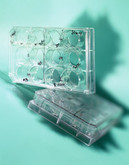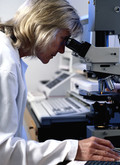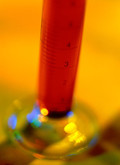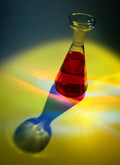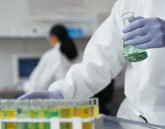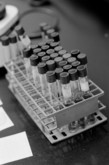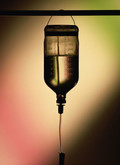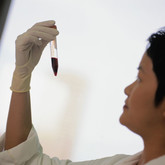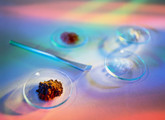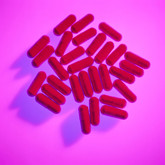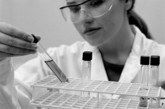Biosimilars/Research
Boehringer Ingelheim starts biosimilar rituximab trial
Germany-based Boehringer Ingelheim Pharmaceuticals (Boehringer Ingelheim) is starting a Phase III trial for a biosimilar version of rituximab.
Biosimilar comparability debate continues
Authors Schellekens and Moors comment on the response from EMA’s Biosimilar Medicinal Products Working Party to questions that they raised regarding EMA’s comprehensive biosimilar regulatory pathway [1]. While the authors express their appreciation of the openness of EMA in the way it has pioneered the biosimilars pathway in Europe, they still argue that EMA has failed to show the scientific need for biosimilar comparability [2].
EMA responds to questions over biosimilar comparability
EMA has responded to questions regarding its comprehensive biosimilar regulatory pathway. The pathway, which includes the need for new clinical trials and comparability studies that demonstrate quality, efficacy, and safety, has been accused of proving to be a barrier for the development of clinically superior compounds [1].
Patients and biosimilar interchangeability
Biopharmaceuticals or biologicals are complex medicines produced by living cells. Copies of approved biologicals have been introduced recently. Because of their intrinsic complexity such copies are similar but not identical to the reference medicine and are therefore called ‘biosimilars’. Approval of biosimilars requires a full quality analysis including a detailed comparison to the reference whereas non-clinical and clinical evaluations are less extensive.
Investigating G-CSF biosimilars approved in Europe
A life-threatening complication for patients undergoing chemotherapy is febrile neutropenia, involving a loss of neutrophils (white blood cells) and fever. Granulocyte colony-stimulating factors (G-CSFs) are growth factors which are used to restore neutrophil production.
Is pegfilgrastim superior to filgrastim for the treatment of febrile neutropenia?
A study to compare the cost-efficiency of three different recombinant granulocyte colony-stimulating factors (G-CSFs) for the treatment of chemotherapy-induced febrile neutropenia assumes that they are of comparable efficacy. But how solid is the evidence for this assumption? A study by Professor Matti Aapro and co-authors explores the available evidence regarding efficacy for the three G-CSFs, filgrastim (Neupogen, Amgen), pegfilgrastim (Neulasta, Amgen) and a filgrastim biosimilar (Zarzio, Sandoz/Novartis) and concludes that evidence behind previous claims of superiority for pegfilgrastim is ‘similar’ and ‘open to question’ [1]. Thus, originator and biosimilar filgrastim appear to be holding ground in the efficacy stakes.
Immunogenicity of biologicals
This article discusses the issue of immunogenicity with respect to originator biologicals and biosimilars [1].
Pricing of biosimilars
For small molecule generics, reductions in price of around 80% have been observed after the first six months to a year of generics entry to the market in countries such as Germany, UK and the US [1, 2]. Biosimilars, however, are an entirely different entity.
Factors affecting market access of biosimilars
Growth in the use of biosimilars is being driven by the need to reduce healthcare costs, patent expiries on blockbuster originator biologicals and better-defined regulatory pathways.
Testing for unwanted immunogenicity from biologicals
Immunogenicity caused by biologicals, both originator and biosimilar, is an important issue that was raised by Dr Wadhwa from the National Institute for Biological Standards and Control [1].
Positive results from phase I study with biosimilar insulin glargine
Leading biotech company Biocon announced on 25 July 2012 positive results from a phase I comparative study conducted in Germany of its biosimilar insulin glargine in type 1 diabetes mellitus (T1DM) patients.
Biosimilar infliximab equivalence proven in phase III trial
Results from a phase III trial of biosimilar infliximab have proven the equivalence of South Korean biotechnology company Celltrion’s biosimilar (CT-P13) and the reference product – Johnson & Johnson’s rheumatoid arthritis blockbuster Remicade (infliximab) in terms of safety and efficacy in patients with active rheumatoid arthritis [1].
Small molecule versus biological drugs
Biological drugs are large and complex, often consisting of heterogeneous mixtures. They are generally made in genetically engineered cells that impose their own variabilities–in post-translation modifications such as glycosylation–on the processes used to make such drugs.
Phase I trial of biosimilar infliximab proves biosimilarity
Results from a phase I trial of biosimilar infliximab have proven the equivalence of South Korean biotechnology company Celltrion’s biosimilar (CT-P13) and the reference product – Johnson & Johnson’s rheumatoid arthritis blockbuster Remicade (infliximab) in terms of pharmacokinetic parameters, as well as in safety and efficacy in patients with active ankylosing spondylitis [1].
Prescriber caution is likely over biosimilars
The experience with generic medicines is a sign that prescribers are likely to be cautious, and in some cases concerned, about the use of biosimilars as alternatives to brand-name drugs.
Biosimilar filgrastim provides cost savings for treating febrile neutropenia
Professor Aapro and co-authors have performed a cost-efficiency analysis for the three most common granulocyte colony-stimulating factors (G-CSF) products used to treat febrile neutropenia: filgrastim (Neupogen, Amgen) and its biosimilar (Zarzio, Sandoz/Novartis) and the pegylated form of filgrastim, pegfilgrastim (Neulasta, Amgen) [1]. Filgrastim is more cost-efficient than pegfilgrastim for up to 12 days of treatment: beyond 12 days, pegfilgrastim becomes the most cost-efficient of the two. But above all, biosimilar filgrastim is the most cost saving compared to both originator filgrastim and pegfilgrastim.
Bioavailability comparison of brand-name and generic acetylcysteine in China
A study comparing brand-name and generic acetylcysteine in China by Liu et al has shown that the generics test formulation was bioequivalent to the originator drug [1].
Oncologists urged to embrace biosimilars to help control spiraling costs of cancer care
Oncologists have been urged to embrace biosimilar drug substitution to help control the spiraling costs of cancer care. However, they have been warned that the optimal realisation of such a programme requires successful educational initiatives and the development of effective working partnerships with pharmacists and patients [1].
The controversies surrounding biosimilars
It is well known that the introduction of similar biological medicinal products, or biosimilars, has caused not a little controversy in the medical world. The aim of healthcare providers/payers, either healthcare authorities or insurance companies, is to reduce the healthcare budget has risen in recent years through the introduction of expensive companion diagnostics, devices, and drugs. At the present moment this can only be achieved in two general ways: either the availability of therapies must be restricted from the patients who would benefit from them, or otherwise the costs of the procedures and drugs must be reduced to within affordable limits so that the majority of patients can benefit from them.
Study of biosimilar enoxaparins in Brazil
Analysis of biosimilar enoxaparins available for clinical use in Brazil by the Laboratório de Tecido Conjuntivo in Brazil have shown that the biosimilar preparations of enoxaprain are similar to the originator drug [1].
